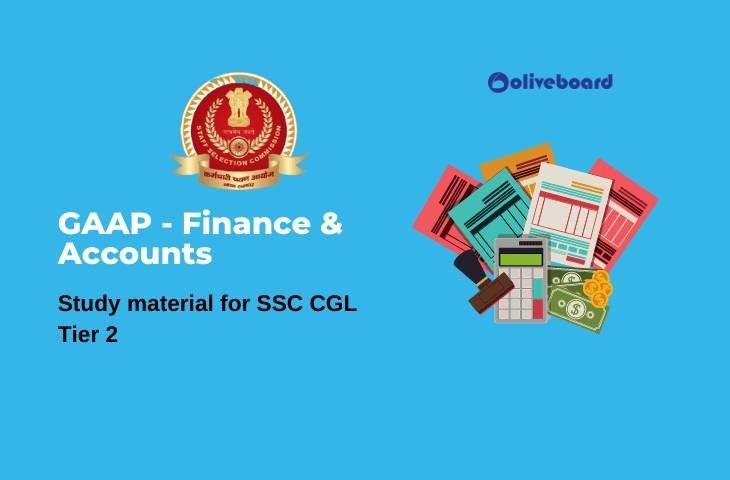Generally Accepted Accounting Principles- SSC CGL Tier 2: The syllabus of General Studies for SSC CGL Tier 2 consists of various topics from Finance, accounts, economics and governance. In this blog, we will be discussing the principles of GAAP which is a part of the finance and accounts section of SSC CGL Tier 2 Paper 4.
The recruitment of Assistant Accounts Officer and Assistant Audit Officer is done through the SSC CGL exam. These are the only gazetted posts in the SSC CGL exam. Those candidates who appear for the posts of assistant accounts officer and assistant audit officer need to appear for a special paper on General Studies (finance and economics) in the SSC CGL Tier 2.
What is GAAP?
The Generally Accepted Accounting Principles or GAAP are regarded as a set of guidelines, rules, principles or accounting standards that needs to be followed by all the companies so as to maintain uniformity in the preparation of financial statements.
GAAP as an accounting standard is used mainly in the USA and all the companies operating in the USA need to adhere to the GAAP. GAAP is established by the Financial Accounting Standards Board (FASB).
The aim of GAAP is to ensure that the financial statements prepared by the companies are complete, comparable and consistent with each other.
Principles of GAAP
There are 10 GAAP principles which are as follows:
Principles of Consistency
The principle of consistency states that the same standards of reporting were followed throughout the accounting period and also the same was maintained for previous and will be maintained for future accounting periods.
This ensures consistency in reporting and makes financial statements comparable across the accounting periods.
Principle of Regularity
The principle of regularity states that accountants have strictly adhered to the rules and regulations that were established for the business.
Principle of Sincerity
The principle of sincerity states that the accountants must strive to present or depict an accurate and impartial financial situation of the company or business.
Principle of Permanence of Method
The principle of permanence of method states that consistent principles and procedures are followed that facilitate the comparison of financial statements.
Principle of Non-compensation
The principle of non-compensation states that both the negatives and positives of a business should be reported with transparency and without any expectation of compensation for reporting.
Principle of Prudence
The principle of prudence states that the reporting of financial data in a business is based on facts and figures and not on speculation.
Principle of Continuity
The principle of continuity states that all the valuation of assets done in financial reporting is based on the assumption that the business will continue its operations in the future.
Principle of Periodicity
The principle of periodicity states that the frequency of financial reporting should be distributed across common time periods such as monthly, quarterly or annually.
Principle of Full Disclosure
The principle of full disclosure or principle of materiality states that a business should disclose its actual financial situation and all accounting information in reports.
Principle of Utmost Good Faith
The principle of utmost good faith is based on the assumption that all the parties pertaining to the reporting remain honest in their reporting of transactions.
How to Download GAAP Study Notes E-book?
Step 1: Click on the download link. You will be redirected to Oliveboard’s FREE E-Books Page.
Step 2: Create a free Oliveboard account or login using your existing Oliveboard account details
Step 3: Download the book by clicking on the link presented on the page.
Also Read:
- SSC CGL Tier II 2021 Study Plan | Important Topics & Tips
- SSC CGL 2021 Tier 2 Preparation Tips for Quantitative Ability & English

Hello there! I’m a dedicated Government Job aspirant turned passionate writer & content marketer. My blogs are a one-stop destination for accurate and comprehensive information on exams like Regulatory Bodies, Banking, SSC, State PSCs, and more. I’m on a mission to provide you with all the details you need, conveniently in one place. When I’m not writing and marketing, you’ll find me happily experimenting in the kitchen, cooking up delightful treats. Join me on this journey of knowledge and flavors!
